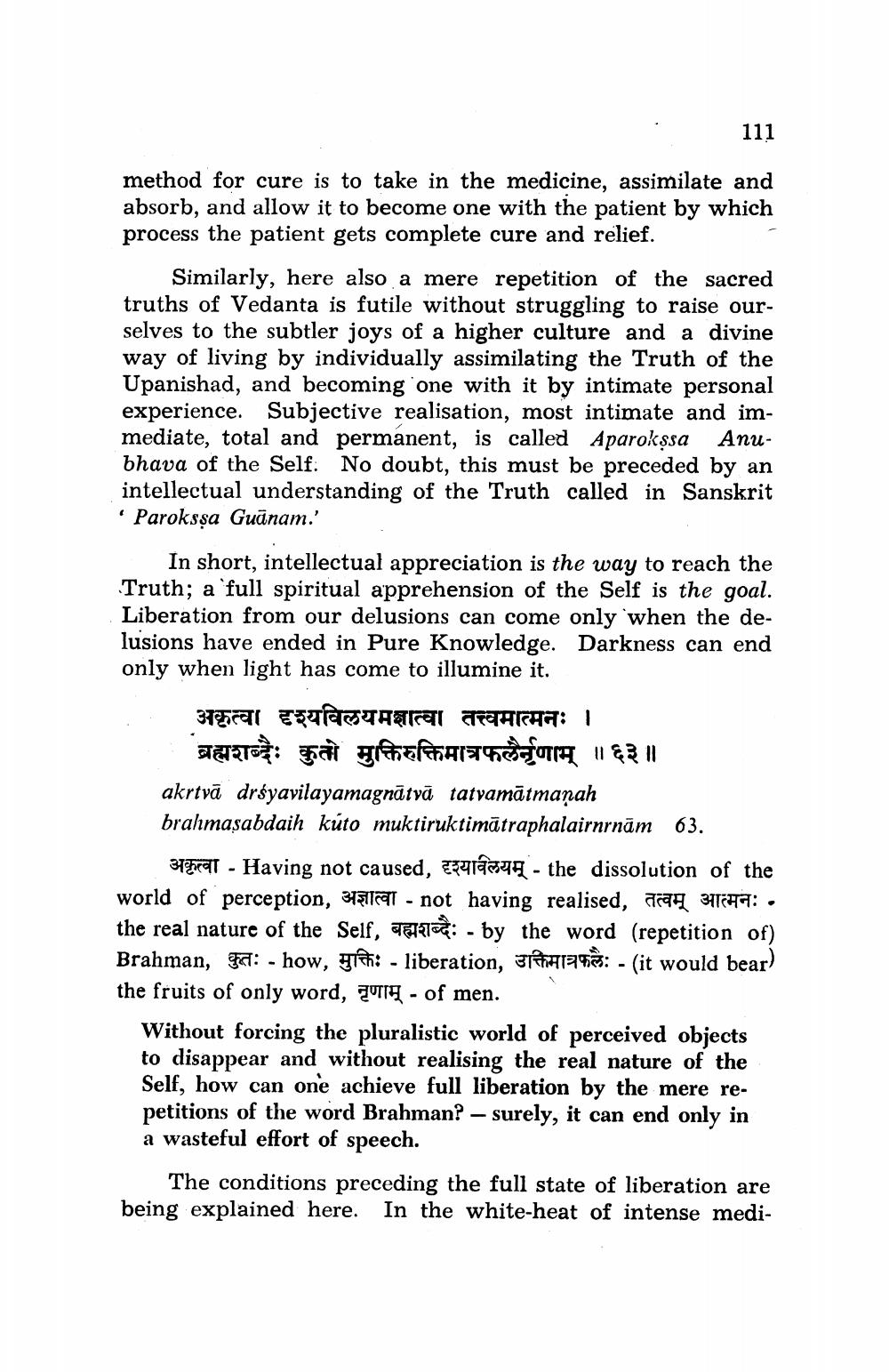________________
111
method for cure is to take in the medicine, assimilate and absorb, and allow it to become one with the patient by which process the patient gets complete cure and relief.
Similarly, here also a mere repetition of the sacred truths of Vedanta is futile without struggling to raise ourselves to the subtler joys of a higher culture and a divine way of living by individually assimilating the Truth of the Upanishad, and becoming one with it by intimate personal experience. Subjective realisation, most intimate and immediate, total and permanent, is called Aparokssa Anubhava of the Self. No doubt, this must be preceded by an intellectual understanding of the Truth called in Sanskrit 'Parokṣṣa Guānam.'
In short, intellectual appreciation is the way to reach the Truth; a full spiritual apprehension of the Self is the goal. Liberation from our delusions can come only when the delusions have ended in Pure Knowledge. Darkness can end only when light has come to illumine it.
अकृत्वा दृश्यविलयमज्ञात्वा तत्त्वमात्मनः । ब्रह्मशब्दैः कुतो मुक्तिरुक्तिमात्र फलैर्नृणाम् ॥ ६३॥
akrtva drsyavilayamagnātvā tatvamātmaṇah brahmaṣabdaih kúto muktiruktimātraphalairnrnām 63.
अकृत्वा - Having not caused, दृश्यावलयम् - the dissolution of the world of perception, अज्ञात्वा - not having realised, तत्वम् आत्मनः • the real nature of the Self, by the word (repetition of) Brahman, कुत: - how, मुक्ति:- liberation, उक्तिमात्रफलै: - (it would bear) the fruits of only word, - of men.
-
Without forcing the pluralistic world of perceived objects to disappear and without realising the real nature of the Self, how can one achieve full liberation by the mere repetitions of the word Brahman? - surely, it can end only in a wasteful effort of speech.
The conditions preceding the full state of liberation are being explained here. In the white-heat of intense medi




